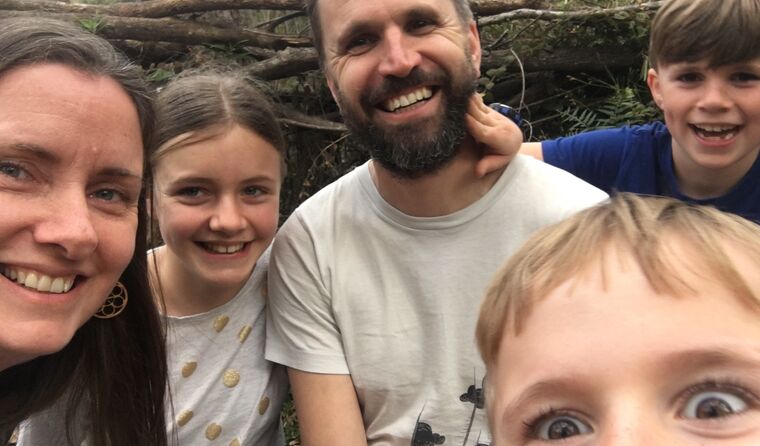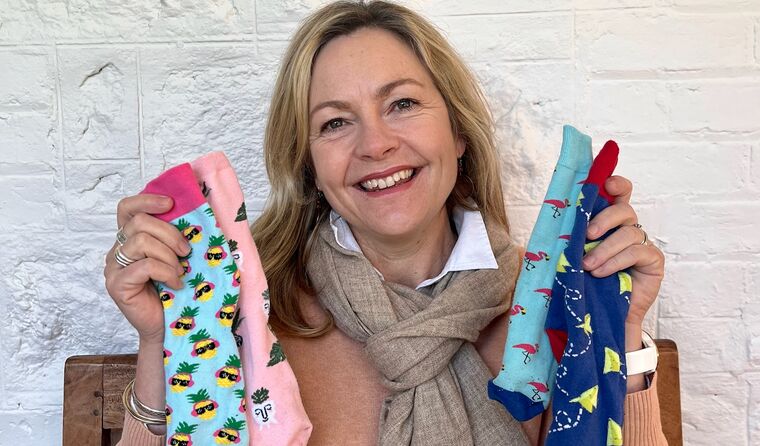News
Why GPs’ self-care matters: Jono’s devastating story
Dr Jonathan Morling took his own life earlier this year. His wife, Caroline, talks to newsGP about her drive to improve mental health outcomes for doctors.
 Dr Jonathan Morling, who took his own life at the age of 41 earlier this year. (Image: Supplied)
Dr Jonathan Morling, who took his own life at the age of 41 earlier this year. (Image: Supplied)
Content warning: This article contains references to suicide.
Wherever Dr Jonathan Morling went, people thought he was a wonderful GP.
Affectionately known as ‘Jono’, he had chased a childhood dream of becoming a doctor to make a difference to people’s lives.
It was a calling that took him way beyond Western Australia where he trained. He worked in a Kenyan orphanage as a younger doctor, and more recently he went to work and live in Timor Leste for a year with his family.
In Bridgetown, the rural Western Australian town where Jono had settled with his wife and three children in early 2018, his dedication once again quickly shone through.
Throughout a tight-knit community, he became known for going above and beyond for his patients; the family doctor who took joy bringing children into the world through his work as a GP obstetrician.
His Bridgetown colleague Dr Sarah Youngson saw the effect he had first hand.
‘Jono was the most beloved doctor in our community,’ Dr Youngson told newsGP.
‘He had this incredible following of patients who absolutely adored him, and quite deservedly so. He was a very, very compassionate, generous, gentle man who gave so much of himself.’
It was not just in the consulting room that Jono went above and beyond for the community.
He took to social media with a guitar to lift people’s spirits in the early stages of the pandemic; joined other volunteer firefighters; coached a local children’s soccer team, and even threw himself into the lead role in a local theatre production.
His selfless, caring nature was clear to all.
But there was another side to Jono, hidden from the outside world, including his colleagues. Jono was fighting his own, long, private battle with depression and despair.
Despite helping many patients with their mental health, Jono found it hard to reach out for support on his own behalf.
On 26 February this year, Jono took his own life. He was just 41.
For Jono’s wife Caroline, the following weeks were ‘totally devastating’ for herself and their children.
While his death had come as a shock for many, Caroline was one of the few who had seen his mental health challenges close at hand.
‘From my point of view, it wasn’t totally unexpected because he had struggled with depression for a long time,’ she told newsGP.
Better mental health outcomes
Once the raw, early grief had eased, Caroline decided to talk openly about her experience and use her voice to improve mental health outcomes for doctors.
‘As soon as Jono died, I knew that I wasn’t going to hide the fact that it was suicide,’ she said.
On a practical level, Caroline says she would like to see greater limits placed on the amount of on-call work an individual doctor can do.
She would also like to see more GPs have their own regular GP, saying her husband had only had a handful of appointments in the previous 15 years.
‘As a doctor he was used to making medical decisions for other people. I guess he decided that he didn’t want to be that vulnerable and hand over his care to someone else,’ Caroline said.
‘If he had been seeing his GP regularly and had someone to keep in touch with, to see how he’s going, things might have been different.’
In the weeks before Jono’s death, Caroline could see his work/life balance was not right, that he was taking on too much, not sleeping enough or exercising, and not able to act when she raised concerns.
‘I know that Jono’s attitude was very much, “I’m not going to focus on myself, I’m going to focus on others and look after others”,’ she said.
‘But it also meant that even when he knew he wasn’t doing very well, or even when I knew he wasn’t doing very well, he didn’t take the time to look after himself.’
Another change – and one that Caroline views as the most important of all – would be to ensure all GPs have mandatory professional supervision whatever the stage of their career.
This would not be clinical supervision. As Caroline sees it, it would mean having a peer or a mentor ‘as a way of checking in, providing support, maintaining professional and ethical boundaries and focusing on self-care’.
‘I think raising awareness around this idea of self-care is really important,’ she said.
‘If people are more self-aware, then they’ll know when they need to take some time and look after themselves.’
 Jono and Caroline Morling with their three children. (Image: Supplied)
Jono and Caroline Morling with their three children. (Image: Supplied)
After Jono died, Caroline spoke at a meeting about wellbeing for his colleagues and medical students, saying she hoped his death might shift the way they prioritised their own welfare.
She challenged doctors to take conscious steps to look after themselves and to choose to be vulnerable with a peer or friend or mentor and to listen to partners when they suggest they should slow down.
‘Remember that Jono was an amazing doctor, but also remember that he couldn’t be everything to everyone, and that you can’t be everything to everyone,’ she said.
‘Can I encourage you to make the choice to look after yourself and your family as well as your patients?’
While Caroline says it was difficult to be so open at first, she believes her approach is already having an effect. Medical students Jono once supervised have told her they are now taking more deliberate steps to look after themselves.
It is heartening feedback for Caroline which reinforces her resolve to keep talking.
‘Nothing can change for Jono or for our family,’ she said.
‘But if there’s the opportunity to change things for other doctors and other families, particularly for the next generation of doctors … that’s why I wanted to say something.’
‘If I don’t speak out, then who else will? I feel like it’s an important thing to do.’
CrazySocks4Docs day
Dr Youngson, Jono’s colleague, describes the impact of his death in the practice where he worked.
‘We all loved him, and he was an integral part of our team,’ she said. ‘It was a really shocking, devastating time for us all and continues to be.’
Dr Youngson is supporting the CrazySocks4Docs initiative this week as a timely reminder for doctors to prioritise their own wellbeing.
 Jono’s colleague Dr Sarah Youngson, getting behind the CrazySocks4Docs initiative. (Image: Supplied)
Jono’s colleague Dr Sarah Youngson, getting behind the CrazySocks4Docs initiative. (Image: Supplied)
The annual awareness-raising event, set up by Melbourne cardiologist Dr Geoffrey Toogood in support of doctors experiencing mental illness, takes place this Friday.
‘As doctors we really need to be able to safely reach out for help,’ she said.
‘I think it’s really difficult at times to acknowledge your own frailties and your own challenges, and then to know where to go.
‘A lot of doctors are not good at having their own GP and so, when you are in crisis, to know who to turn to is sometimes very difficult.’
Dr Youngson believes there are a lot of reasons, both individual and systemic, surrounding why some doctors do not seek help when they really need it.
‘I think there is also a fear of the implications in acknowledging your mental illness or struggles, that it may have implications for your professional life, and that sort of stigma around your competency and being able to continue to work,’ she said.
‘I think as doctors we need to be brave and talk about our own personal struggles that we may have experienced.
‘I just think we need to be more open.’
The eye-catching socks also go beyond the medical profession by raising important wider awareness, Dr Youngson believes.
‘It’s a timely reminder for all of our patients to just realise that we’re all human,’ she said. ‘That we’re all in this together and we all suffer the same hurt and pain as other people do.’
Editor's note: This article was amended on 1 June to clarify what is meant by mandatory professional supervision for GPs.
Mental health support for GPs
For immediate support, you can call Lifeline 13 11 14, or Beyond Blue 1300 22 46 36.
The RACGP also has extensive self-care and mental health resources for GPs published on its website.
Log in below to join the conversation.
CrazySocks4Docs depression mental health self-care suicide
newsGP weekly poll
As a GP, do you use any resources or visit a healthcare professional to support your own mental health and wellbeing?